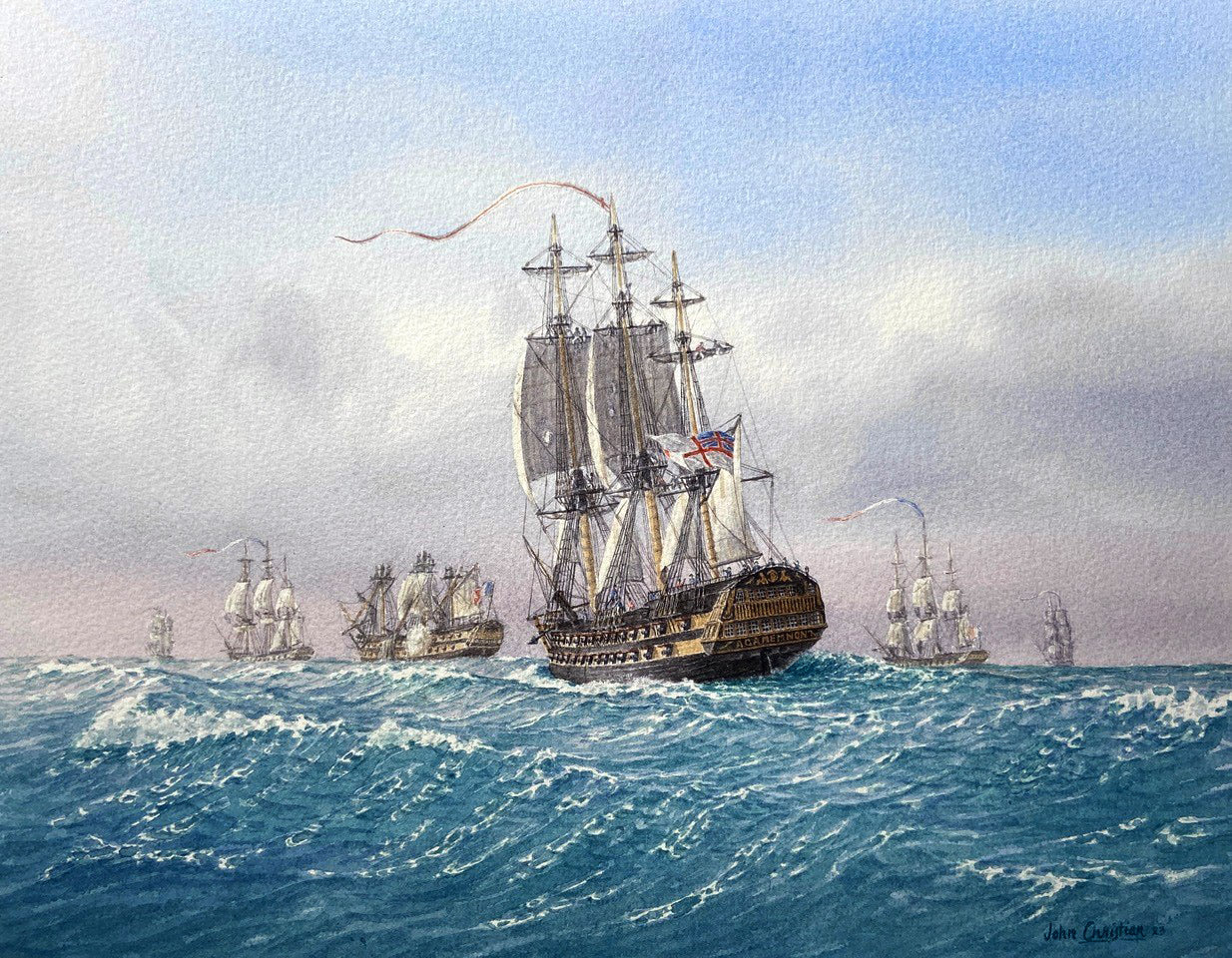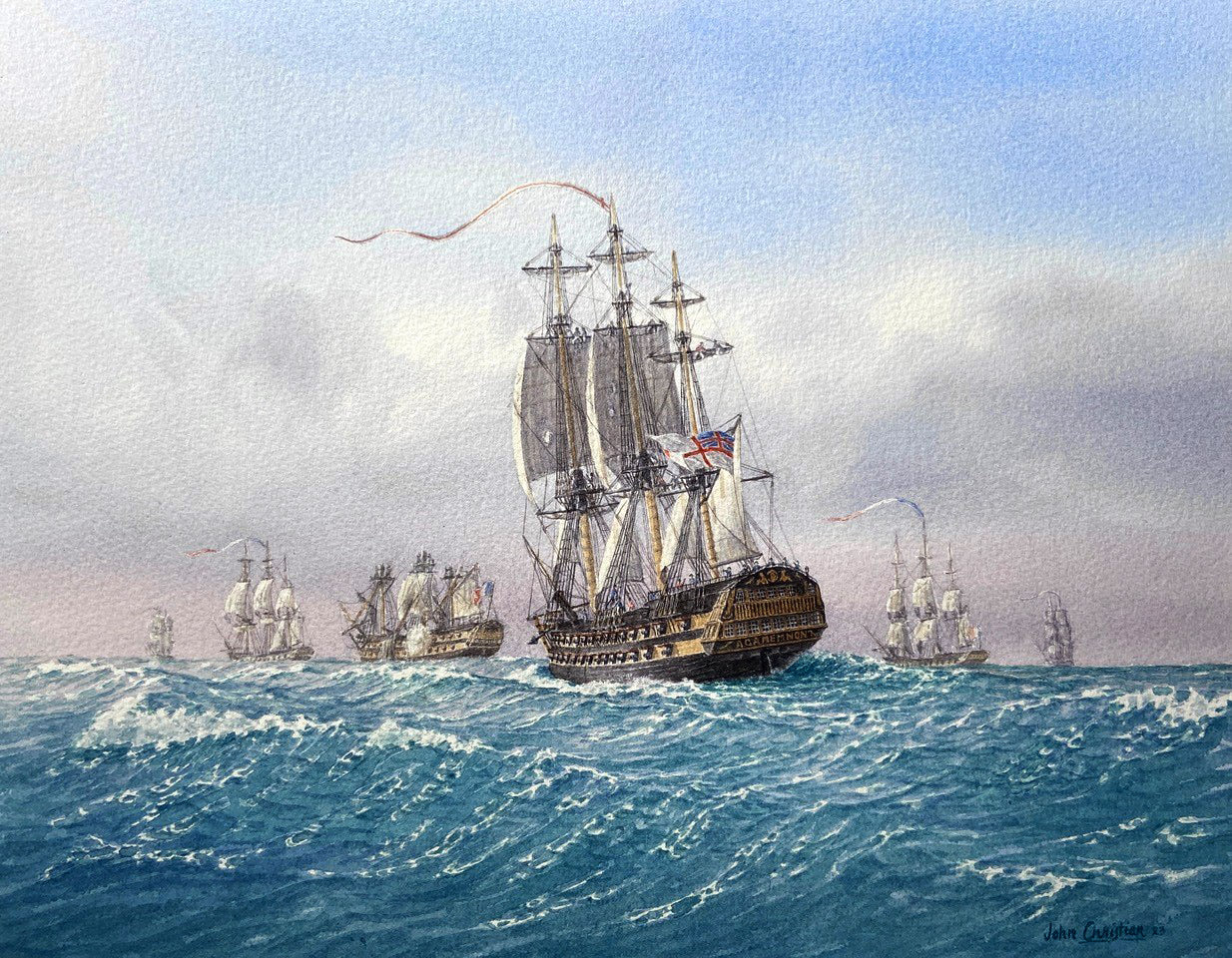Art Marine
Agamemnon Beats to Quarters - John Christian
Agamemnon Beats to Quarters - John Christian
Couldn't load pickup availability
Original watercolour on paper signed lower right.
Image size: 17.125 x 13.125 inches (44cm x 33.5cm)
Mount size: 22 x 18 inches
Frame size: 25 x 21 inches
This painting is based on the action in the Mediterranean on 8th March 1795, between the British and French fleets. The French had left Toulon for Corsica to establish French control.
On the 12th March 1795, Nelson wrote ‘The French are now within 4 miles of Agamemnon and Princess Royal, our fleet 10 miles from us and the enemy attempting to cut us off’. For years he had hoped and waited for fleet action, and now it seemed he was about to see one.
With erratic winds, the French were soon in disarray. The Ça Ira and Victoire collided and Ça Ira had to stand away between the two fleets. The failure of Admiral Hotham to follow home a dispirited and fleeing enemy frustrated Nelson in Agamemnon, who was outdistancing the fleet. He saw his chance and took it. Although the Ça Ira was an 84-gun ship ‘absolutely large enough to take Agamemnon in her hold’, Nelson made straight for the crippled giant which was being supported by a frigate dispatched to take her in tow.
With her Marine drummer beating to quarters, the Agamemnon could be ready for action in little more than 5 minutes. Private gear and all furniture were sent below, fire buckets filled, sails dowsed with water, and wet sand sprinkled on deck to lessen fire risk and give crew surer footing. Gun crews at stations and flint locks ready, slow matches lit, lashings cast off guns and ports opened, powder monkeys stocking up with cartridges for a first broadside. The carpenters standing by below with wooden plugs and tools to deal with underwater damage. The surgeon and mates waited with instruments, water, rum, tourniquets, and bandages. As there was time, the officers changed into clean linen and fresh breeches and silk stockings, to reduce the risk of infection from dirty clothes being driven into a wound, from gunshot on deck.
The men stripped to the waist; their neck handkerchiefs now tightly tied around their heads to cover their ears. The concussion of the guns in a confined space could deafen a man for life. Guards were placed at hatches leading from the gun deck. The master-at-arms making rounds and keeping tally. When all was ready the First Lieutenant would make a complete tour, encourage men, and issue final orders to senior officers.
Nelson decided to lay his ship across the enemy’s stern. Although this meant Agamemnon was subject to fire from the Ça Ira’s stern guns, the way Nelson maneuvered his ship meant that the larger Frenchman could never bring her broadside to bear, support from the fleet eventually came and the Frenchman lowered her flag soon after.
Share


